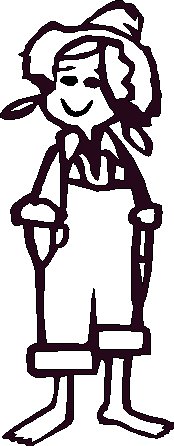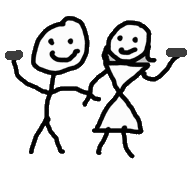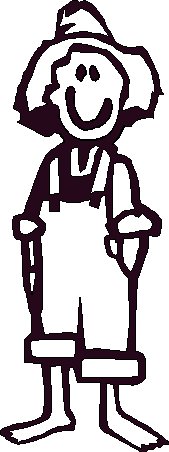
 This is my family. I am Jack. Jill is my sister. Mr. Jack Painter is my father. Mrs. Julia Painter is my mother. Mr. and Mrs. Painter are my parents. I am their son. Jill is their daughter. I am Jill’s brother. Parents and children make a family. They live together in a house. My father paints cars. My mother also helps him in his work. I find his work fascinating. When I grow up I will learn to paint cars too.
This is my family. I am Jack. Jill is my sister. Mr. Jack Painter is my father. Mrs. Julia Painter is my mother. Mr. and Mrs. Painter are my parents. I am their son. Jill is their daughter. I am Jill’s brother. Parents and children make a family. They live together in a house. My father paints cars. My mother also helps him in his work. I find his work fascinating. When I grow up I will learn to paint cars too.
Tag: Work
Prepositions
Prepositions
Prepositions are words which relate two elements of a sentence, phrase or clause together. Prepositions usually indicate how the elements relate in time and space.
Prepositions generally precede the words which they ‘govern’. A preposition normally governs a Noun or a Pronoun.
Prepositions are often very short words, as – at, in, on, to, before, after, before, behind, below etc.
Some complex prepositions consist of two words, as ahead of, instead of, agree with, agree to. Instead of, and some consist of three, as – with reference to, in accordance with, in addition to etc.
Although prepositions are small, they are important and also tricky. Basic grammar books tell about prepositions that refer to time and place. But there are other prepositions where no rules can help, e.g. you laugh at someone; you are angry with someone; you are sorry for someone; you are afraid of something. And there is no reason why you use these. You must just learn the preposition with the word (noun, adjective and verb) that it goes with.
Let us look at some of these common prepositions illustrated in the sentences below:
About:
She walked about (around) the room.
They are always about the place.
There are about (nearly) a dozen apples in the basket.
Grandmother, tell me a story about a fairy.
She told me all about you.
I sent him about his business (sent him away).
What about some coffee? (Shall we have it?)
Above:
The blue sky is above our heads.
The airplane flew above the skyscrapers.
Her character is above suspicion.
Above all, don’t forget the salt.
After:
She takes after her mother (resembles).
She was named after her grandmother.
Everybody left, one after another.
The debate went on day after day.
Against:
He married against his father’s wish.
He was made to work against his will.
She was feeling weak and leaned against the wall for support.
They are saving money against a rainy day.
The soldiers defended the city against attack.
He struggled against great difficulties in his life.
He was against the proposal.
At:
at the top of the stairs, at a distance
at four o’clock, at Christmas, at night, at the end of the class
at work, at play, at school, at lunch
at war, at peace, at rest
I looked at the old man.
The little boy threw a stone at the bird.
We laughed at his actions.
Before:
He reaches office before nine o’clock.
It rained day before yesterday.
I will see you again before long.
The thief was brought before the magistrate.
Behind:
The girl is hiding behind the door.
The moon has gone behind the clouds.
It was wrong to do it behind my back.
What are you hiding behind you?
Beside:
There came a big spider and sat down beside her.
My house is beside the river.
She was beside herself with anxiety when she heard about the accident (wild with).
What you say is beside the question (has nothing to do with it).
Beyond:
The river lies beyond those hills.
We should not live beyond our means.
She is beyond the doctor’s help.
His behavior is beyond description.
But:
She took nothing but water for five days.
All but one of these students speak English.
War brings nothing but misery.
By:
She sits by me at school.
Our camp was by the lake.
We must get to school by 9 o’clock.
You must finish this work by tomorrow.
The parcel must have arrived by now.
They came to Goa by air.
One by one, step by step, drop by drop, little by little.
You must learn this poem by heart.
He dropped the glass by mistake.
He took me by surprise.
We use by for all passive constructions with agents, e.g.
This work was done by John.
The cake was eaten by the rats.
Machines are driven by steam or electricity.
The cake was cut by the newly wedded couple.
The Perfect Tenses
The Perfect tenses
Perfect tenses are formed with the helping verb to have and the past participle.
- Why are they called perfect? Study these examples:
At 8 o’clock we say: “The news will come on the television at 8.30.”
At 8.30 we say: “The news is coming on the television.”
When the news broadcast is over we say: “The news has come on the television.” The action is finished, complete or perfect.
The Present Perfect Tense
- Form: have/has +past participle (3rd form of verb).
- We use the present perfect tense for an action that is just completed, e.g.
I have just finished my lunch. (It implies that I am not hungry and cannot have anything more).
They have just reached home. (It implies that they are perhaps tired and need rest).
- We use the present perfect tense for an action that took place in the past but we are more interested in the present consequences of the action than in its definite time in the past, e.g.
I have completed my work. (It implies that now I am free to play/watch television etc.).
- We use the present perfect very often with indefinite adverbials of time. e.g. yet, already, often, never, always, sometimes, etc. We do not use a definite adverbial of time, e.g. ago, a minute ago, long ago, last night, yesterday, on Monday etc. With these we use the simple past.
- We use the present perfect sometimes for an action which began in the past, continues in the present and may continue in the future, with adverbial phrase beginning with for and since, e.g.
I have been here for the past 15 years.
He has worked here since 1990.
I have not met him since Friday.
- But we use the present perfect continuous more often for this purpose.
The Past Perfect Tense
- Form: had + past participle (3rd form of verb).
- The past perfect tense is used for an action begun and completed before another action. It is used for the earlier of the two actions in the past. So we usually need it only in a sentence with two clauses and not in a simple sentence, e.g.
The bus had left before we reached the bus-stop.
As we had missed the bus we waited an hour for the next,
I had finished the work before the guests arrived.
He had left for his office when I got to his house.
- It is used in indirect speech to replace both the simple past and the present perfect in direct speech, e.g.
She said, “I waited for you for an hour and then I went away.”
She said that she had waited for him for an hour and then she had gone away.
He said, “I have done this work.”
He said that he had done that work.
- Notice that the present perfect is used in sentences which use after, before, when, until etc. in them.
Future Perfect Tense
- Form: shall/will + have + past participle (3rd form of verb).
- It is used for an action beginning and ending at some given time in the future. So it is usually followed by a phrase like by this time or a clause like before something happens, e.g.
You will have reached Delhi by 9 o’clock tomorrow morning.
Mother will have prepared the lunch before we reach home.
The painters will have painted the building before the school re-opens.
My little sister will have gone to school by 8 o’clock.
- Note that we use this tense when we are thinking of a point in the future time and looking back from it to what happened before.
- Also note that if there is a second clause it is in the present tense, as is usual after conjunctions of time.
Snow White and Rose Red – Audio Story
Listen to the story and attempt the following questions:
- Where did the widow live with her two beautiful daughters?
- Where was the cottage situated?
- Why did the people appreciate the cottage?
- What was the name of the two daughters and why did their mother give them these names?
- Describe the two girls and their nature?
- Where did the girls go after completing their work?
- What did their mother teach them every evening?
- Who knocked at their door on a cold winter evening?
- What did they find on opening the door?
- What did the big brown bear want?

- Did the girls and their mother allow the bear to stay with them?
- When did the bear leave their house?
- Why did the bear thank the girls?
- Whose beard was caught in a bush?
- How did the two girls help the dwarf?
- Did the dwarf thank them for helping him?
- How did the girls save the dwarf from the large bird?
- What was the dwarf holding when the girls saw him again?
- How did the jewels sparkle?
- What did the dwarf try to do when the bear appeared before him?
- Was he able to run away?
- What did the bear want the dwarf to do?
- What was the bear changed into?
- Who had changed the prince into a bear and when?
- Where did the prince invite the girls and why?
- What happened in the end?
Conjunctions
Conjunctions: Joining Words
- Read the following sentences:
1. Jack and Jill went up the hill.
2. Bill is a clever but lazy boy.
3. Work hard or you will fail.
4. They are poor yet happy.
5. I like John because he is intelligent.
6. I will not go to see the film if you do not come.
In the above sentences the words and, but, or, yet, because and if join words or sentences together. Such words that join words or sentences together are called Conjunctions.
- Some common Conjunctions:
And, but, or, nor, therefore, because, if, both, only, that, after, before, unless, as, else, till, until, whether, though, although, than, yet, etc.
